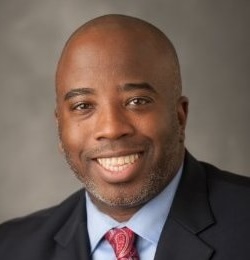4 minutes
Credit unions can support individual successes in communities of color and help break down systemic barriers that prevent access to credit.
Rivermark Community Credit Union, Beaverton, Oregon, is both proud and excited to be one of only three credit unions in the country to be selected in June 2023 to participate in the two-year Underwriting for Racial Justice pilot program. The program will run through May 2025.
Deeply rooted in the credit union’s mission of “building financial empowerment together,” we at Rivermark CU believe that it’s no longer enough to simply be an ally; we must be co-conspirators in creating equitable access to credit and financial wellness for all. We are intentional about taking actions that result in meaningful impact for the communities we serve.
The URJ Program Pilot
The URJ program is supported by the Beneficial State Foundation, which is the primary and founding shareholder of a social impact bank. The foundation is also a social and environmental justice nonprofit whose goal is to advance racial justice by changing the banking system. Our missions align in so many ways that we felt it was imperative we participate in this program.
Through the URJ pilot, we are joining 19 other values-driven institutions from across the country to identify, develop and test solutions that will create equality in a system that has not historically benefited people of color or other marginalized communities. This means specifically partnering with communities of color to rethink how we analyze risk in underwriting and loan servicing to increase access to mortgage, consumer and small business credit.
Enhancing Existing Programs With the 3 E’s
We have a few existing lending solutions we are looking to enhance through this program, including our diversity small business and individual taxpayer identification lending programs and some of our financial wellness lending products, such as our payday alternative loan program.
We are gearing up to test these programs by first reviewing the existing data on our performance results to identify strengths and opportunities to enhance our overall positive impact on our member borrowers. Our efforts focus on the ‘3 E’s’: educate, enhance and empower.
Access to information (education) is critical. Without information—and good information—you cannot act. Having relevant, timely and credible information allows you to look at things differently, challenge your thoughts/processes and identify enhancements to your existing products, employee skill sets and strategies; it also allows you to build momentum to empower your employees to execute these new enhancements ways you wouldn’t have if you weren’t open to exploring alternative ways of doing things. The end result is a more empowered community and ecosystem.
Reflecting on Injustice in Lending
Through the URJ program, lenders are encouraged to reflect on how racial injustice, through such discriminatory practices as redlining and disparate underwriting practices, has led to unequal starting points in the banking system. This disparity, even when combined with equal application of processes and practices, ultimately results in inequality. These unequal starting points within the financial system also hinder comprehensive economic progress and the ability for minority communities to thrive sustainably and build generational wealth.
The Impacts of Pilot Participation
The URJ program also advises offering better pricing within loan product design along with more flexible repayment options.
Thus far, being part of the pilot has helped us either validate or reconsider some our current pricing strategies for both our community impact lending programs, as well as our traditional lending programs. Having the ability to leverage a third party (or a different lens) is challenging our thoughts and providing us a broader perspective on alternative ways to accomplish the same goal, taking into account some of the potential intended consequences, which could either negatively impact our members and/or miss out on opportunities to add greater value and impact to our members.
The capital provided by the program is primarily intellectual capital, in the sense we have a cohort of lenders who carry a similar vision, although they may come from different starting points and perspectives. The residual learning capital from these discussions has been invaluable thus far. At Rivermark Community Credit Union, we’re excited about what is coming as we continue our journey and engagement with the URJ program. We’re pleased to be part of the solution in supporting individual successes in communities of color while breaking down some of the systemic barriers that prevent access to credit.
CUES member Aben Hill is chief lending officer of $1.4 billion Rivermark Community Credit Union in Beaverton, Oregon. In this role, he is responsible for all lending and operations activities for mortgage, consumer and commercial real estate, including insurance and collections. He focuses on transformation, leadership development and developing high-performing teams that achieve sustainable results. As a result, Rivermark Community CU’s commercial loan portfolio has grown from $27 million to $65 million, and mortgage operational expenses have been reduced by 85%.






